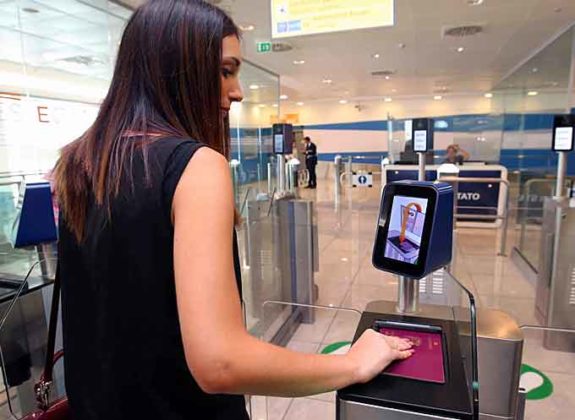Moove, an African mobility fintech that provides vehicle financing to drivers of ride-hailing platforms like Uber and other gig networks, has raised $76 million in new funding.
It includes $28 million in equity from new and existing investors led by Mubadala Investment Company, $10 million in venture debt from funds and accounts managed by BlackRock, and $38 million in previously undisclosed funds raised during the prior 12 months, Moove said in a statement.
The news is coming a year after Moove raised a $105 million Series A2 financing ($65 million equity and $40 million debt). The company, which closed its $23 million Series A round in 2021, has employed several types of debt financing since inception from British International Investment, Franklin Templeton Investments and ABSA.
Moove has raised $325 million ($150 million in equity and over $175 million in debt). This latest financing takes Moove’s valuation to $550 million.
Founded in 2020 in Lagos, Nigeria, by co-CEOs Ladi Delano and Jide Odunsi, Moove, via revenue-based financing, provides flexible options for drivers who want to get into the business of ride-hailing or other gig economy services without having to borrow from car owners or take bank loans to finance these cars bought from dealerships.
Drivers sign up on the platform and, once verified, are trained and sign contracts with Moove to access loans to buy or rent cars. The company gets these drivers on Uber (its exclusive partner across Africa for ride-hailing) or other mobility platforms, including Glovo, Kobo360 and Swvl, as gig drivers.
Moove then deducts weekly rental fees from their earnings before transferring the balance to their accounts. The loans are between 12 and 48 months, and when drivers repay them (at an 8% to 13% annual interest rate), they own the cars, according to the three-year-old startup.
Since its launch, the Lagos-born and Amsterdam-headquartered startup has expanded its operations to 13 cities across Africa, Europe, the Middle East and Asia. The countries where Moove has a presence include Nigeria, Egypt, South Africa, Ghana, Kenya, the U.K., India, and the UAE, demonstrating what the founders informed TechCrunch on the startup’s expansion plans during its last pricing round in March 2022.
“We have managed to build a Nigerian solution for what we now know is a global problem,” Delano said. “And that is exciting for us because not only do we have the opportunity to help solve the lack of access to vehicle financing problems for mobility entrepreneurs in Africa, but now we have the opportunity to take this Nigerian-born solution to the rest of the world.”
Moove intends to use the investment to expand and consolidate its position in these markets, where it remains Uber’s largest vehicle supply partner across EMEA. Moove claims to be India’s second-largest vehicle partner and operates the largest EV fleet by supply hours on the Uber platform in the UAE, despite launching only four months ago.
The mobility fintech, which works with 15,000 customers who have completed more than 22 million trips, said it has experienced a 17x revenue growth since its Series A in 2021. Moove has annual recurring revenues of $90 million, according to the Financial Times.
Delano, in a statement, alludes to Moove’s profitability in some markets. According to the co-CEO, the Mubadala-led financing will help Moove double down on already profitable markets, including the UAE, India, the U.K., and South Africa, “as well as continuing to invest in our customer experience and accelerate our product development to deliver group-wide profitability within the next 12 months.”
In retrospect, it could be argued that Moove’s actions over the past couple of months, which have raised eyebrows, were geared toward meeting this target. Moove, which employs 500 people, conducted a company-wide “dismissal” in December, affecting an unknown number of employees. In May, a report detailed complaints of unfair working arrangements in Nigeria where Moove impounded drivers’ cars for nonpayment of loans.
Unsurprisingly, these reports haven’t deterred Moove’s investors, who now have an appetite for profitable companies or those that can show a clear path there, from pumping more money into the self-described mobility fintech. For lead investor Mubadala, this is its first investment in an African-founded upstart, and Faris Sohail Al Mazrui, its head of ventures and growth, will join Moove’s advisory board. “Moove has built a highly scalable tech-enabled platform to serve mobility entrepreneurs globally by providing them access to credit and other financial services previously unavailable to them. This is a hugely underbanked and underserved market that we believe has significant long-term potential,” he said of his firm’s investment in Moove, which also has other global backers, including Speedinvest and Left Lane Capital.









